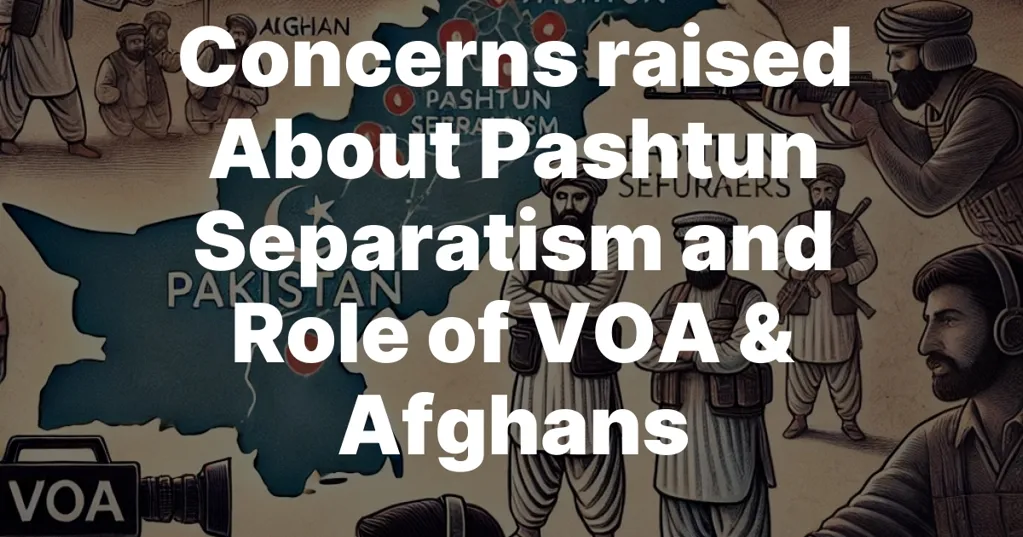Washington DC: In a significant and sensitive exchange during a Pentagon press briefing, The Frontier Post questioned Pentagon Press Secretary Brigadier General Patrick Ryder about alleged attempts to promote Pashtun separatism in Pakistan's Khyber Pakhtunkhwa (KP) province. The reporter highlighted concerns about external influences, including the involvement of Afghan refugees residing in Islamabad and journalists affiliated with the U.S.-funded Voice of America services, such as VOA Deewa and VOA Pashto.
The question touched on a topic with far-reaching implications for Pakistan's sovereignty, U.S.-Pakistan relations, and the broader regional stability in South Asia.
The Frontier Post claimed that certain Afghan refugees, reportedly residing in Islamabad under arrangements facilitated by the U.S. State Department, were engaging in activities that allegedly support the idea of Pashtun separatism. This alleged narrative is said to be amplified by media outlets like VOA Deewa and VOA Pashto, which have a significant reach among Pashto-speaking populations in Pakistan and Afghanistan.
The concerns extend to the political landscape in Pakistan, particularly regarding the Pakistan Tehreek-e-Insaf (PTI) party, led by Imran Khan. The reporter warned that if PTI or its leadership were to align with such separatist sentiments, it could have dangerous consequences for Pakistan's unity and stability.
General Ryder's Response
"The United States values its partnership with Pakistan in addressing shared challenges, including counterterrorism and regional stability," Ryder stated. He emphasized that the U.S. does not support any actions that would undermine Pakistan's territorial integrity.
In response, General Ryder reaffirmed the U.S. commitment to maintaining strong bilateral relations with Pakistan and respecting its sovereignty. However, he did not delve into specifics regarding the alleged activities of Afghan refugees or VOA journalists. When pressed further about the role of U.S.-funded media in the region, Ryder deferred to the State Department, which oversees Voice of America and its editorial policies. He underscored that VOA operates independently and is not directly controlled by the Pentagon.
Background and Context
The Pashtun belt in KP and adjacent areas has historically been a politically sensitive region both for Pakistan and its neighbors. In recent years, the Pashtun Tahafuz Movement (PTM), a civil rights group advocating for Pashtun rights has drawn attention to grievances such as enforced disappearances military operations lack of development while PTM denies any separatist agenda critics accuse it being influenced external actors.
The mention of VOA adds another layer of complexity As US government-funded broadcaster often faced scrutiny countries where reporting perceived critical local governments Deewa focus audiences issues ranging human rights counterterrorism
Implications for U.S.-Pakistan Relations
The Frontier Post's question raises important questions about U.S influence unintended consequences media refugee policies If allegations gain traction they could exacerbate anti-American sentiments undermine trust between two nations
"For Pakistan managing delicate balance between addressing legitimate grievances preventing narratives gaining traction remains top priority role external actors real perceived adds urgency challenge."
